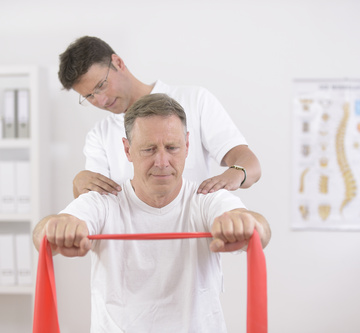 Physical therapy plays a crucial role in recovery from any dislocation.
Physical therapy plays a crucial role in recovery from any dislocation.
Your therapist will help position the shoulder joint in the right position and immobilize it to promote healing and prevent further damage. A sling may be used for three to eight weeks, depending upon the severity of the injury. Once healing is complete, physical therapy will facilitate recovery. Rehabilitation treatments can include:
Heat and Cold Therapy – Used to manage pain and reduce swelling.
Exercise – A customized program of gentle exercise to build stability, strength and muscle control helps offset muscle weakness after weeks in a sling. Patients will be provided with a strength and mobility program that can be implemented at home and work.
Clinical Pilates – At times, a specialized exercise program can be designed to regain muscle strength, tone, and control. Exercises may be performed with specialized equipment or independently.
Electrical Stimulation – The technique is used to improve muscle and ligament tone. This is a useful method to control pain and inflammation.
Water Therapy – Water relieves stress on joints and encourages patients to relax and move with relative ease. An aqueous environment provides support for weak muscles and joints and supports 'relearning' of muscle strength and control.